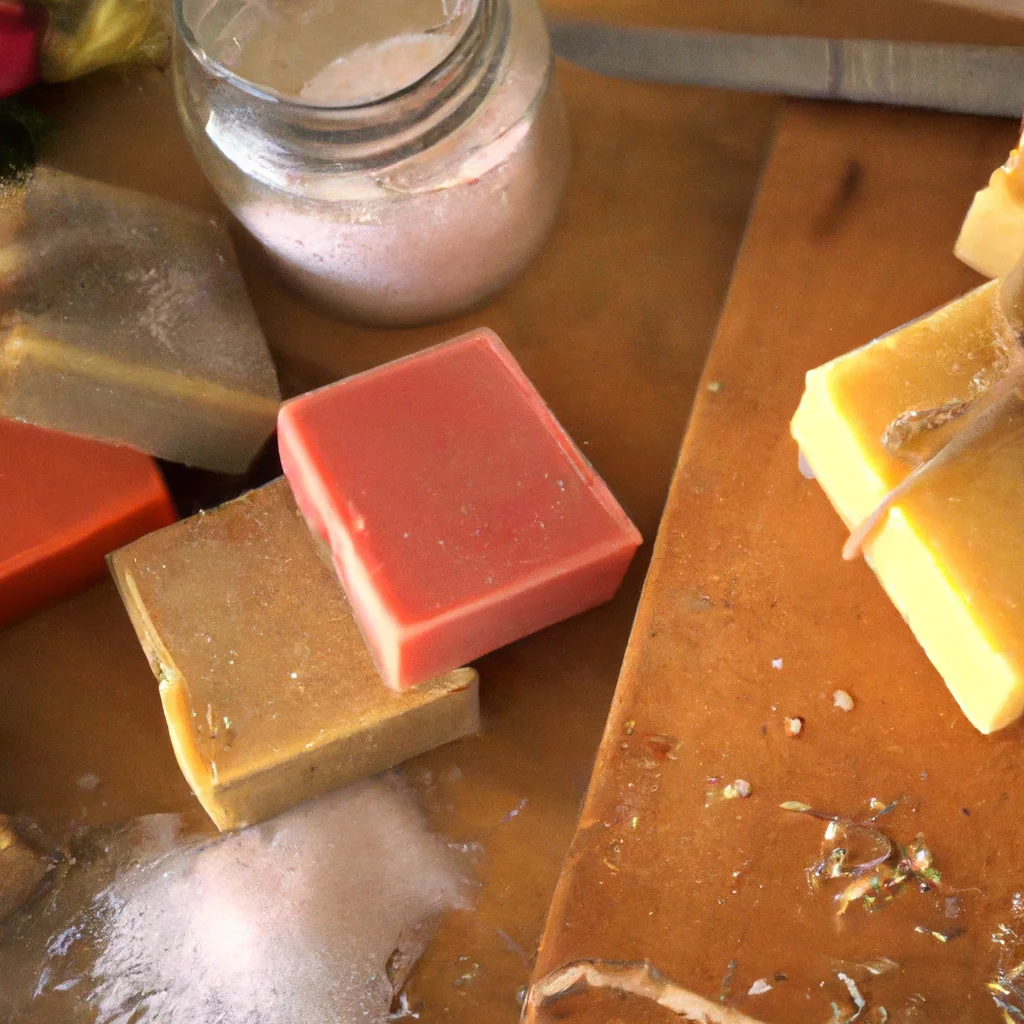How to make your own natural soap?


How to make your own natural soap?
Natural soap has become increasingly popular in recent years, as people become more conscious of the chemicals found in many commercial soaps. Making your own natural soap is easier than you might think, and can be a fun and rewarding activity. In this article, we will provide a step-by-step guide on how to make your own natural soap, including a soap recipe and information on soap ingredients and the soap making process.
Soap Ingredients
Before you start making your soap, it’s important to gather the necessary ingredients. Here are the ingredients you will need to make a basic natural soap:
– 1 cup of coconut oil
– 1 cup of olive oil
– 1 cup of vegetable oil
– 1/2 cup of lye (also known as sodium hydroxide)
– 1 cup of water
– Essential oils for fragrance (optional)
It’s important to note that lye is a caustic substance that can be dangerous if not handled properly. Always wear gloves and eye protection when working with lye, and keep it out of reach of children and pets.
Soap Making Process
Once you have gathered your ingredients, it’s time to start making your soap. Here is a step-by-step guide to the soap making process:
1. Prepare your work area: Soap making can be messy, so it’s important to prepare your work area before you start. Cover your work surface with newspaper or plastic, and have all of your ingredients and equipment within reach.
2. Mix the lye and water: In a well-ventilated area, carefully mix the lye and water in a heat-resistant container. Stir until the lye is fully dissolved. This mixture will become very hot, so be careful not to touch it or breathe in the fumes.
3. Melt the oils: In a separate heat-resistant container, melt the coconut oil, olive oil, and vegetable oil together over low heat.
4. Combine the lye mixture and oils: Once the lye mixture and oils have reached the same temperature (around 100°F), slowly pour the lye mixture into the oils, stirring constantly.
5. Blend the soap: Using a stick blender or hand mixer, blend the soap mixture until it thickens and reaches “trace”. Trace is the point where the soap mixture has thickened enough to leave a trail when you drizzle it across the surface.
6. Add essential oils: If you want to add fragrance to your soap, now is the time to add a few drops of essential oils. Stir well to distribute the scent.
7. Pour the soap into molds: Pour the soap mixture into your chosen molds, tapping them gently on a flat surface to release any air bubbles.
8. Let the soap set: Cover the molds with a towel or piece of cardboard to insulate them, and let the soap set for 24-48 hours.
9. Cut the soap: Once the soap has set, remove it from the molds and cut it into bars. Let the bars cure for 2-3 weeks in a cool, dry place before using.
Soap Tutorial
If you’re new to soap making, it can be helpful to watch a soap tutorial to see the process in action. There are many soap making tutorials available online, including videos on YouTube and step-by-step guides on soap making websites.
Tips for Making Natural Soap
Here are a few tips to keep in mind when making your own natural soap:
– Use high-quality ingredients: The quality of your soap will depend on the quality of the ingredients you use, so choose the best oils and lye you can afford.
– Experiment with different oils: You can customize your soap by using different oils, such as almond oil, avocado oil, or shea butter, to create different textures and properties.
– Be patient: Soap making is a process that takes time, so be patient and don’t rush the curing process.
– Practice safety: Always wear gloves and eye protection when working with lye, and keep it out of reach of children and pets.
In conclusion, making your own natural soap is a fun and rewarding activity that allows you to customize your soap to your preferences. By following this step-by-step guide and using high-quality ingredients, you can create a soap that is gentle on your skin and free from harmful chemicals.
Recent Posts
How do I create an engaging and informative online quiz or assessment?
Creating an engaging and informative online quiz or assessment can be a powerful tool for… Read More
What are the most effective methods for managing and reducing work-related stress in the hospitality industry?
Work-related stress is a common issue in the hospitality industry, where employees often face long… Read More
How can I improve my assertiveness and communication skills in a leadership position?
In a leadership position, assertiveness and effective communication skills are crucial for success. Being able… Read More
What are the key elements of a successful employee recognition and rewards program?
Employee recognition and rewards programs play a crucial role in motivating and engaging employees, as… Read More
How do I effectively manage and respond to customer feedback and reviews?
Customer feedback and online reviews play a crucial role in shaping a company's reputation and… Read More
What are the best strategies for effective time management as a stay-at-home parent?
Effective time management is crucial for stay-at-home parents who juggle multiple responsibilities on a daily… Read More